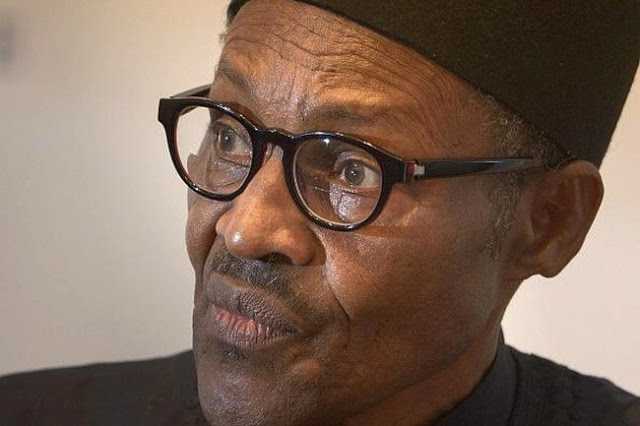
From Unimaid to Buhari University: Tinubu's Renaming Decision Sparks Academic Backlash

A wave of mixed emotions swept across Nigeria's academic and political landscape following President Bola Ahmed Tinubu’s unexpected decision to rename the University of Maiduguri as Muhammadu Buhari University, Maiduguri. While the move was likely intended to honor the former President Muhammadu Buhari’s contributions to the nation, it has stirred a heated national debate about identity, legacy, and the sanctity of established educational institutions.
Among the first to publicly react was Dr. Yakubu Sani Wudil, an assistant professor and well-known academic voice on matters of national interest. Dr. Wudil took to his social media platform to express a deep sense of concern over what he described as a well-intended but misplaced gesture. “President Tinubu has renamed the University of Maiduguri to Muhammadu Buhari University, Maiduguri. I believe this was done in good faith,” he began, setting a respectful but firm tone. “However, I wish he had chosen to rename the Federal University of Transportation in Daura instead.”
The renaming has reignited conversations about national identity, educational heritage, and political symbolism in Nigeria. For many, Unimaid, as the University of Maiduguri is affectionately known, is more than just a name. It is an emblem of resilience, intellectual freedom, and the pursuit of knowledge in a region that has faced intense security challenges over the past decade. The name carries historical weight, representing a beacon of hope and development in Nigeria’s troubled northeast.
“It’s like asking Harvard to change its name to Barack Obama University,” Dr. Wudil noted with poignant clarity, drawing a parallel that resonated strongly across social media. The analogy quickly went viral, capturing the sentiments of thousands who felt blindsided by the government’s decision. “You don’t just strip a university of its legacy,” one commentator wrote. “Unimaid has survived Boko Haram, educated generations, and built a name from scratch. Now it’s being politically repackaged.”
The decision comes at a time when Nigerians are already questioning the motives behind the naming of public assets after political figures, especially those still living or recently departed. While some argue that honoring past leaders is part of preserving history, others believe it often veers into the territory of political sycophancy and undermines public institutions' neutrality.
Critics also argue that the timing of the renaming raises questions. With the country battling economic challenges, insecurity, and policy uncertainty, some see this move as a deliberate distraction or a populist gesture. “You can’t rename identity. You can’t rewrite history with a signature,” another lecturer at the university said anonymously. “We were not consulted, and it feels like our legacy was sold overnight.”
Supporters of the renaming, however, argue that Muhammadu Buhari, having served as Nigeria’s democratically elected president and a native of the northern region, deserves to have his name immortalized in a significant way. To them, attaching his name to a prestigious academic institution is a fitting tribute. But even among Buhari’s admirers, not everyone is convinced that Unimaid was the appropriate choice.
“This isn’t about Buhari being undeserving,” Dr. Wudil clarified in a follow-up post. “It’s about respecting institutional history. Why not name a new or specialized university after him? Why overwrite an existing one with over 40 years of legacy?” He suggested that the Federal University of Transportation, located in Buhari’s hometown of Daura, would have been a more suitable candidate for the honor, symbolizing development and progress in Buhari’s direct lineage.
The University of Maiduguri, established in 1975, has long been a cornerstone of education in the northern region. It has produced prominent scholars, public servants, and professionals who continue to shape Nigeria and beyond. Its journey through decades of security challenges, including threats from insurgent groups, has only strengthened its symbolic relevance as a fortress of learning and resistance.
Alumni of the university have also voiced their displeasure, with many describing the renaming as “disrespectful” and “politically motivated.” A campaign has already begun to trend online, with hashtags like #SaveUnimaid and #RespectLegacy gaining momentum. Petitions are reportedly being circulated among faculty, students, and alumni urging the presidency to reconsider the decision.
Meanwhile, university administrators have yet to release an official statement, and campus discussions have grown increasingly tense. Many staff members have expressed fears that the change could spark protests or affect the university’s global reputation, funding relationships, and alumni networks. “Brand matters in education,” one faculty member said. “It affects partnerships, recognitions, exchange programs, even research grants. This is not a simple name change—it has far-reaching implications.”
The political implications are also significant. While President Tinubu has previously pledged to promote unity and continuity, this move is being interpreted by some analysts as an attempt to consolidate influence in the north and appeal to Buhari loyalists. However, it risks alienating a broader academic and civil society that views such actions as arbitrary and insensitive.
The Federal Ministry of Education has not issued a formal briefing on the criteria or consultation process behind the renaming, fueling further frustration. Some education experts argue that renaming universities should involve stakeholder engagement, legislative backing, and public input—not executive fiat.
As the backlash grows, attention now turns to whether President Tinubu will address the concerns or stand by his decision. Nigerians are watching closely, not just to see how this controversy unfolds, but also to understand what it means for the future of educational institutions in the country. Is this a one-off misstep, or a sign of deeper political encroachments into academic spaces?
Dr. Yakubu Sani Wudil’s comments have become a rallying cry for those who believe in preserving institutional integrity. His words echo a larger sentiment across Nigeria: that while leaders come and go, the identity of a university—its name, its story, its values—should not be subject to the whims of political expediency.
As one viral post aptly put it, “Names are not just titles. They are heritage. And heritage is not something you rename overnight.”


